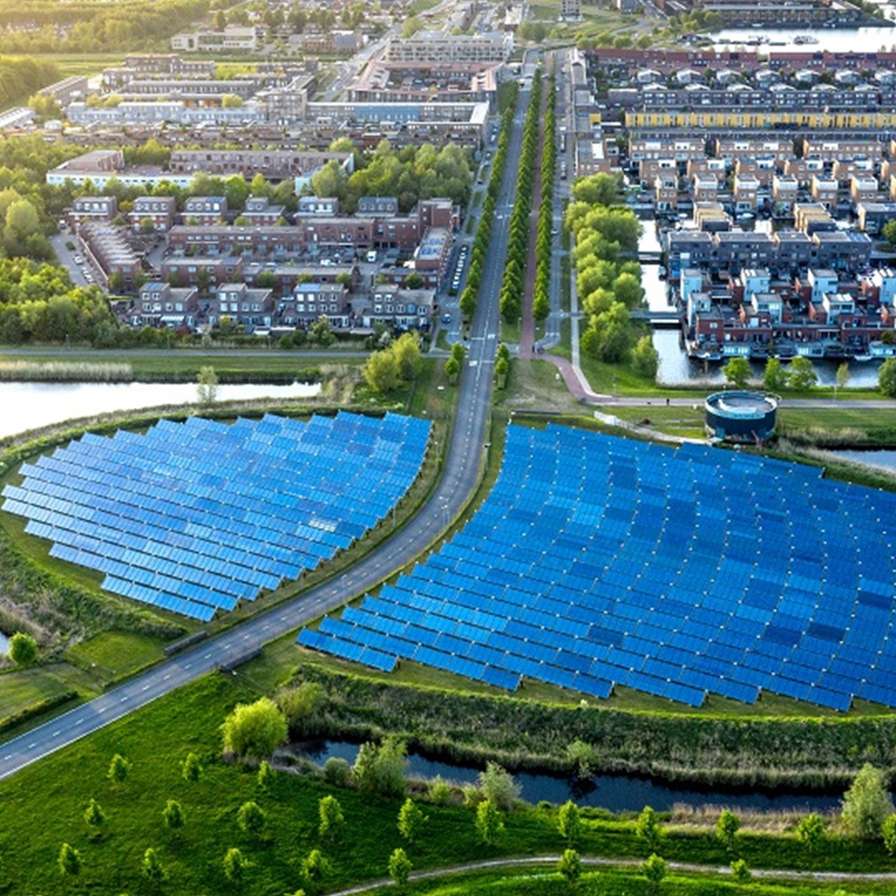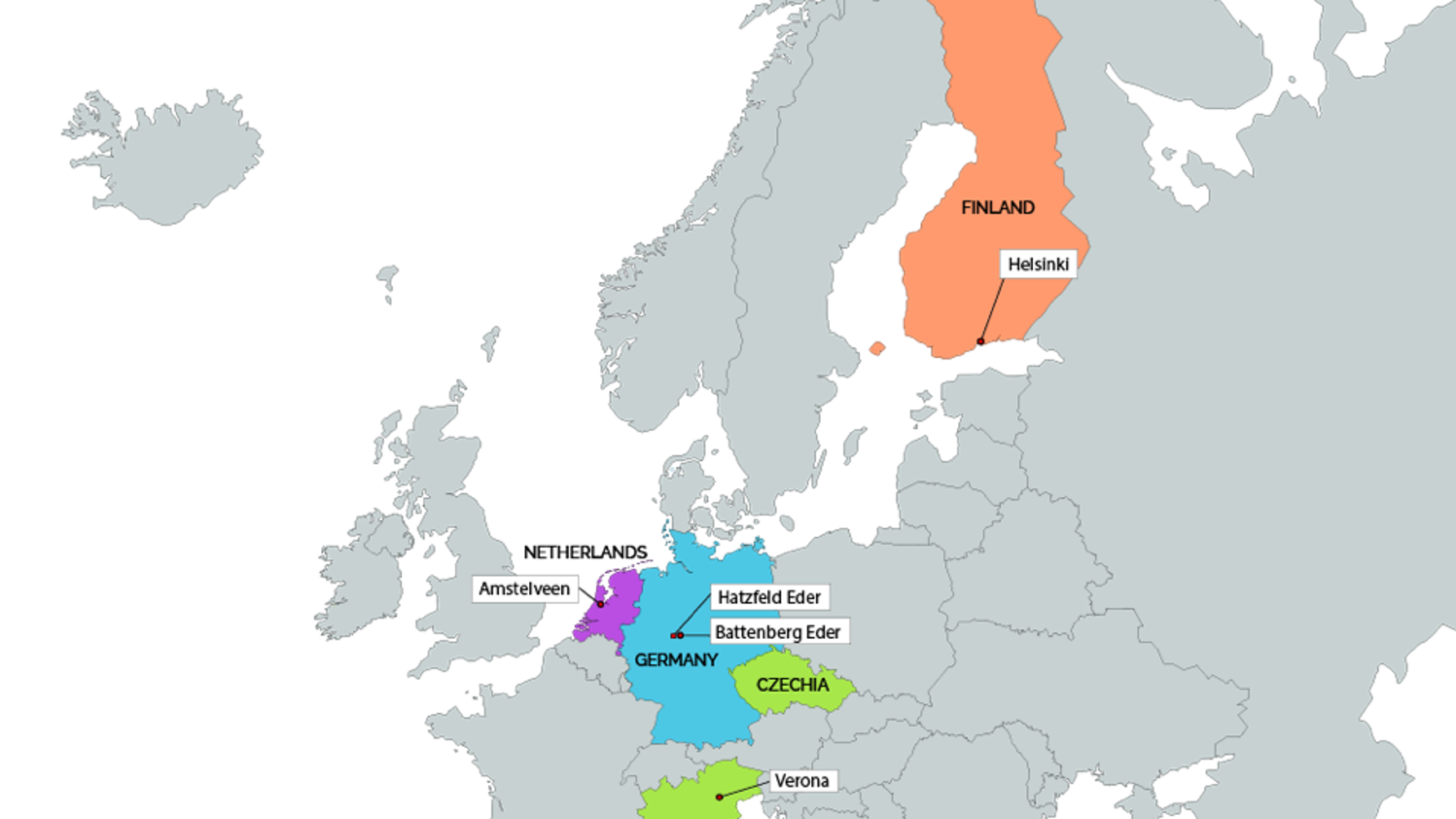4A4PEDs: the resilience of energy-positive districts

Millions of Europeans cannot afford to heat their homes adequately. This is due to rising energy prices caused by the war in Ukraine, the corona pandemic and other geopolitical tensions. Also, many buildings are still poorly insulated, driving up energy bills and increasing energy poverty. How can European cities better deal with these challenges? One solution is to make them more energy resilient. The 4A4PEDs project explores how energy-positive districts can strengthen their own resilience.
Energy systems resistant to crisis
Energy-positive districts are urban neighborhoods that generate more renewable energy than they consume annually. By generating, storing and smartly using energy locally, these neighborhoods play a key role in the energy transition. They can make cities greener, more social and more resilient.
The concept of energy resilience helps understand how energy-positive districts can contribute to a more stable, future-proof energy system. The more resilient districts are, the more resistant they are to sudden events, such as an energy crisis or power outage. The war in Ukraine showed how vulnerable energy systems can be. Therefore, it is important to design energy-positive neighborhoods in such a way that they can withstand such shocks and move flexibly with change. For example, by ensuring that residents always have access to reliable, affordable energy, even during a crisis.
4A4PEDs: resilient, energy-positive districts
The project 4A4PEDs stands for Availability, Accessibility, Affordability and Alliance Principles for Energy Resilient PEDs. In it, the Amsterdam University of Applied Sciences, together with (inter)national partners, investigates how energy-positive districts can strengthen their resilience. The project focuses on 4 pillars:
- Availability: how can renewable energy be made sufficiently available?
- Accessibility: how to keep renewable energy accessible to all through well-organized networks and infrastructures?
- Affordability: how do we keep sustainable energy affordable for households, businesses and communities?
- Alliance: a strong collaboration between municipalities, (market) parties and residents is indispensable to build future-proof neighborhoods.
Living labs as test grounds for the future
The pillars form the basis for the development of resilient, energy-positive districts in 4 living labs across Europe:
- Verona
- Amstelveen
- the region of Helsinki (Helsinki, Espoo and Vantaa)
- Battenberg and Hatzfeld
Common path to a sustainable future
The living labs reveal how neighborhoods can become self-sufficient and future-proof. They offer space to experiment with new solutions, increase the energy resilience of neighborhoods and gain knowledge that will help to apply this approach more widely in the future.
By working together, the cities in the 4A4PEDs project form a strong network. They share knowledge, support each other and thus accelerate their common path to a sustainable future. The participating cities all benefit from this shared approach. Together they are building a roadmap for the resilient energy-positive district of the future, with useful tools and simple guidelines - ready for use in other cities across Europe.

Education
Students from the HvA and other colleges and universities involved are participating in the research, including through internships and graduation projects. In this way, the project contributes to the development of the professionals of the future. There is also a link to educational activity through U!reka, through cases that students work on.
Team
- Omar Shafqat (Project Leader)
- Renée Heller (Professor)
- Stan Majoor (Professor)
- Frank Kuipers (Researcher)
- Emma Zuiderveen (Researcher)
- Joachim Meerkerk (Lecturer and Researcher)
- Ben Eggink (Lecturer and Researcher)
Partners and funding
The 4A4PEDs project was funded by the Driving Urban Transitions program of Regieorgaan SIA. Since several partners are involved in the U!reka(opens in new window) partnership, there is a strong link with U!reka activities in the field of research and education. The project partners are:
- Italy: Eurac Research, Italy (coordinator of the project) and Municipality of Verona, Italy
- The Netherlands: Amsterdam University of Applied Sciences, Municipality of Amstelveen and Alliander
- Finland: Metropolia University of Applied Sciences, Municipality of Helsinki, Municipality of Vantaa, Municipality of Espoo, Eenemanen Voltan Lähienergia
- Germany: Frankfurt am Main University of Applied Sciences, Municipality of Battenberg and Municipality of Hatzfeld
- Czech Republic: Technical University of Ostrava
Research groups Energy and Innovation and Coordination of Urban Issues
Two AUAS research groups are working together on the 4A4PEDs project. The Energy and Innovation research group researches and designs technological interventions that accelerate the energy transition.
The Coordination of Urban Issues research group explores how residents, government agencies and other stakeholders can co-create urban environments, as well as providing support through one of our hands-on approaches.